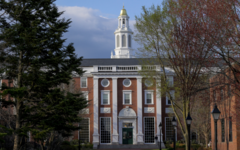A fragile piece of purple-and-white fabric found in a Greek tomb is now claimed to have belonged to Alexander the Great, sparking controversy within the archaeological community. While the original findings attributed the tomb to Alexander's father, new interpretations challenge long-held beliefs.
A Stunning Claim: Fabric Found in Greek Tomb May Have Belonged to Alexander the Great

A Stunning Claim: Fabric Found in Greek Tomb May Have Belonged to Alexander the Great
New research posits that a rare piece of ancient fabric excavated from a tomb could have connections to the legendary conqueror Alexander, stirring debate among archaeologists.
In a fascinating twist of history, a scrap of ancient fabric discovered decades ago in a tomb in northern Greece has brought to light a new theory regarding its potential connection to one of history's most renowned figures—Alexander the Great. A recent paper by Antonis Bartsiokas, a paleoanthropologist from Democritus University of Thrace, asserts that the fragile, purple-and-white cloth may not belong to Alexander's father, Philip II of Macedon, as previously thought. Instead, Bartsiokas suggests that items found in the tomb, including the piece of fabric, may belong to Alexander himself or possibly his half brother, Arrhidaeus.
The debate centers around a tomb unearthed in 1977 under the guidance of the esteemed archaeologist Manolis Andronicos. Andronicos, who passed away in 1992, firmly believed that the tomb housed the remains and treasures of Philip II, known for his military accomplishments that unified ancient Greece and set the stage for Alexander's subsequent conquests. Bartsiokas, however, aims to overturn this narrative by examining the fabric and applying newly developed analytical techniques alongside interpretations of ancient artwork found within the tomb vicinity.
Critics within the archaeological field have dismissed Bartsiokas's assertions as lacking in empirical support, arguing that they present a challenge to established scholarly consensus. Nevertheless, if Bartsiokas's thesis is substantiated, it may dramatically reshape our understanding of this significant historical site and its occupants, thereby placing a new narrative on the legacy of Alexander and his lineage.




















